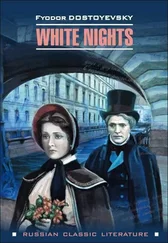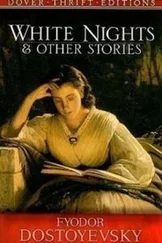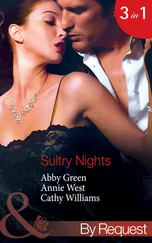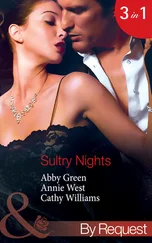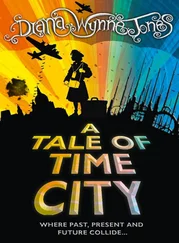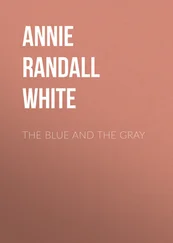Annie DeWitt - White Nights in Split Town City
Здесь есть возможность читать онлайн «Annie DeWitt - White Nights in Split Town City» весь текст электронной книги совершенно бесплатно (целиком полную версию без сокращений). В некоторых случаях можно слушать аудио, скачать через торрент в формате fb2 и присутствует краткое содержание. Год выпуска: 2016, Издательство: Tyrant Books, Жанр: Современная проза, на английском языке. Описание произведения, (предисловие) а так же отзывы посетителей доступны на портале библиотеки ЛибКат.
- Название:White Nights in Split Town City
- Автор:
- Издательство:Tyrant Books
- Жанр:
- Год:2016
- ISBN:нет данных
- Рейтинг книги:5 / 5. Голосов: 1
-
Избранное:Добавить в избранное
- Отзывы:
-
Ваша оценка:
- 100
- 1
- 2
- 3
- 4
- 5
White Nights in Split Town City: краткое содержание, описание и аннотация
Предлагаем к чтению аннотацию, описание, краткое содержание или предисловие (зависит от того, что написал сам автор книги «White Nights in Split Town City»). Если вы не нашли необходимую информацию о книге — напишите в комментариях, мы постараемся отыскать её.
Annie DeWitt
Granta
Believer, Tin House, Guernica, Esquire, NOON
BOMB, Electric Literature
American Reader
Short: An International Anthology
Gigantic
Believer
White Nights in Split Town City — читать онлайн бесплатно полную книгу (весь текст) целиком
Ниже представлен текст книги, разбитый по страницам. Система сохранения места последней прочитанной страницы, позволяет с удобством читать онлайн бесплатно книгу «White Nights in Split Town City», без необходимости каждый раз заново искать на чём Вы остановились. Поставьте закладку, и сможете в любой момент перейти на страницу, на которой закончили чтение.
Интервал:
Закладка:
In winters, Ada went stir crazy. Without the constant drone of customers to meddle with, she took to the offensive, canning enough leftover produce to feed an army of squatters. The local newspaper ran a feature about it. Ada stacked the cans in the old carriage shed that had once housed their vehicles and farm equipment. Forced to keep his equipment out in the open, the joke went that after a snowfall Cash had to shovel out his own plow. If you drove by their property in winter, you could make out the faint outline of a backhoe towering over the empty cornfield gathering snow.
That summer, Ada had turned an old wooden carriage on end so the wheel made a table. Ada sat behind this table most afternoons in a rusted-out folding chair, playing checkers with Wilson. It seemed the two hardly moved position.
As Birdie and I turned our bikes into the gravel driveway one afternoon after the Ranger’s visit, Wilson got up from his chair. He began undoing his belt and moving his hips back and forth in the air.
“Stop saluting those girls,” Ada said, reaching into her apron for a folded up newspaper and cuffing him on the bald spot on the back of his head.
Wilson pumped his hips so hard the air moved, and for the first time that summer, I could feel a slight breeze take the hairs at the base of my neck.
“You stay put with the bikes,” I said to Birdie. Birdie was afraid of Wilson. She didn’t understand why an old man was interested in a couple of kids. Otto’s faded blue Cadillac turned into the drive.
The car was as wide as the road and moved like a boat. Dust kicked up around it and the sun cast a glare on the windshield, behind which I could make out two well-tanned shoulders in the front seat. A woman climbed out of the car, swinging her legs out from under the dash where they had been resting in Otto’s lap.
“Afternoon, Ada,” Otto said.
“Afternoon, Otto,” Ada said without rising from her chair.
That was the first time I had heard anyone refer to Otto by his first name. I wondered how Ada had come to know it.
“I hear the hay’s in early this year,” Otto called to her.
“I reckon it is,” Ada said.
“Well then, if it’s alright with you, I’d like to get in on it.”
“I reckon you would,” Ada laughed.
As Otto and the blonde walked into the farm stand, Wilson began rocking his hips.
“Ain’t it a little early in the day for all that?” Otto Houser said to Wilson as he walked by the table, casting a stare over his shoulder at his son.
Wilson pumped his fist twice in the air.
“Sailor’s salute,” the blonde laughed, walking over to Wilson.
The woman’s jeans were short. As she crossed the parking lot, the fray exposed her behind. She smoothed a lock of Wilson’s hair away from his eye and sat in his lap.
“Sailor’s salute,” Wilson said, as she settled into him.
“Afternoon, Callie,” Ada said to the woman, pushing her chair out from under the table and spitting under her breath.
“Is it?” Callie said, leaning forward and pulling a pack of cigarettes out of the pocket of her shirt.
As Callie lit the cigarette, Wilson straightened up in his chair.
“Smokes,” he said.
It was early in the day. Inside, the farm stand lacked its usual commotion. The hum of the freezer kicked in every now and again from the back. Cash had once tried his hand at the cattle business, turned loose a few meat cows on the muddy acres where the hay wouldn’t grow. He’d marketed the choice cuts to a friend who distributed to the Steak House a few towns over. The leftovers he sold to the locals from the freezer out back of the farm stand. All that was left of the business was a yellowing sign, a hand-drawn image of a black and white cow with arrows pointing to the various cuts. The freezer now housed bars of ice cream and prepackaged cones, which Birdie and I bought with our quarters.
“Son,” Otto Houser said, nodding at Fender while taking a sheet of paper from his billfold and laying it next to the register.
Fender stared down at the paper as though it were a speck of dust which he might as soon have blown off the checkout and swept under the counter.
“Seems Wilson’s got a soft spot for that one,” Ada said.
“Nah,” Otto Houser smiled, nodding his head toward the patch of drive next to the bikes where Birdie was standing. “Wilson’s taken a shine to the little miss.”
“Poor thing,” Ada said. “Can’t help himself.”
“Who can, Ada,” Otto said.
A look passed between them. They both chuckled for a moment.
Outside, Birdie was eyeing Ada’s empty seat at the table across from Wilson and Callie.
“Here, baby,” Callie said laughing, holding up a checker, motioning Birdie over to the table.
“Well, what do you need then?” Ada said, turning back to Otto.
“My regular,” Otto said picking up the list he’d taken from his billfold and handing it to Ada. “Seeing as the hay’s early, I want to put an order in with Cash for a loft full of your finest.”
“Well, there’s nothin’ that man can do that I can’t handle,”
Ada said. “I’ll put you down in the books for a truck load. Come on out back.”
As Ada disappeared through the back door into the office, Fender plucked a honey stick out of the box next to the register and bit off the tip.
“I ain’t your son,” Fender said to Otto, spitting the tip in the dust and leaning back against the dusty pay phone behind the register.
Fender was the type of boy who grew up cat-spined and shady. Tall and fair and tow-headed, Fender could lean against almost anything and look like he was born to stand there, like he was made to do just that. I’d first seen him at school smoking cigarettes under the grove of birch trees that lined the fence. He wore a tight denim jacket and carried a brown paper satchel under his arm which I’d seen him pass around to the people he drifted with. Those days Fender came to school, he was suspended. At recess he was made to stand in the shade of the school building with his back against the brick. Watching him stand there, I remember thinking Fender could lean into the wind without falling over, propped up by reputation alone.
Lonesome for any visible parentage, it was well repeated that Fender was among the motherless, a legend which served to soften his fate. As the youngest Steelhead brother, Fender was viewed as the town’s last opportunity to stamp out misfortune. When he lifted several volumes of encyclopedias from the local library, the librarians considered the books a donation. God willing, they said, Fender would read them. In the eyes of the town Fender was still open to redemption. Before the week was out, the library was missing the whole set.
Ada and Cash had run the farm stand out of their garage for as long as anyone could remember. When it came to troubled boys, they had seen the worst of them. Rumor had it, Cash felt guilty about calling the cops on Fender one night after he looted a patch of their tomatoes. To make it up to him, Cash had given Fender a few paid hours of work every week.
As I looked out at my bike parked in the drive, I wondered how Fender would answer the phone if it rang.
The list in my pocket was always the same with slight variation: an armload of zucchini, two peppers, an ear apiece of corn for us girls and two for Father. Though I knew it by heart, that afternoon as I retreated into the cool shade of the garage, I pulled Mother’s list out of my pocket, walked over to the counter and placed it next to the register.
“Hey, Hotshot,” I said.
I was wearing my swimsuit with allure.
“Well, what do they call you?” Fender said, deepening his lean and stuffing his hands into his pockets.
“Billie,” I said. The name occurred to me on the spot. I’d recently taken to sifting through my parents’ vinyls when Mother was out with the Separatists and Father was in the basement pining away over his college easel. Most of my parents’ records were decrepit. They lacked the speed of the current moment. The one vinyl I listened to was the only one to which I could dance. It was electric and funky and sounded like it had come from some future generation. “Billie Jean” was the title track.
Читать дальшеИнтервал:
Закладка:
Похожие книги на «White Nights in Split Town City»
Представляем Вашему вниманию похожие книги на «White Nights in Split Town City» списком для выбора. Мы отобрали схожую по названию и смыслу литературу в надежде предоставить читателям больше вариантов отыскать новые, интересные, ещё непрочитанные произведения.
Обсуждение, отзывы о книге «White Nights in Split Town City» и просто собственные мнения читателей. Оставьте ваши комментарии, напишите, что Вы думаете о произведении, его смысле или главных героях. Укажите что конкретно понравилось, а что нет, и почему Вы так считаете.
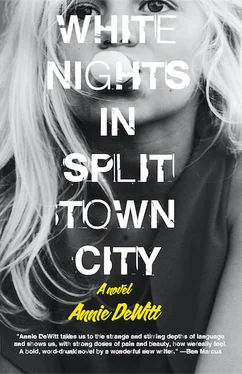
![Элизабет Ленхард - Свидание со смертью[Date With Death]](/books/79651/elizabet-lenhard-svidanie-so-smertyu-date-with-dea-thumb.webp)



